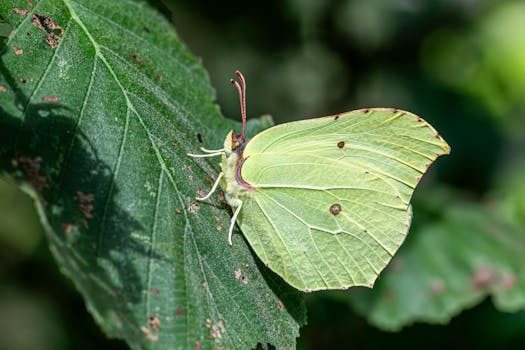As the world of pet ownership expands beyond the traditional cat and dog, more people are turning to exotic animals for companionship. However, with this trend comes the responsibility to understand the legal breeds for exotic pets, as well as the care and regulations involved in keeping these unique creatures. It’s essential for potential pet owners to navigate the complexities of exotic pet laws to ensure the safety and well-being of their animals, themselves, and the ecosystems around them.
For those living in urban and suburban areas, and seeking to combine their love for travel and exotic pets, it’s imperative to stay informed about which animals can be considered part of the family without breaking any laws. This guide will provide practical advice and insights into the world of legal exotic pet ownership.
What Are The Best Legal Breeds For Exotic Pets?
Identifying the best legal breeds for exotic pets in the USA involves a balance between an animal’s welfare needs and an owner’s ability to meet them. Some of the most popular and legal exotic pets include certain species of reptiles, like bearded dragons and ball pythons, small mammals like hedgehogs and sugar gliders, and even some bird species like cockatiels and parrots.
These animals have been deemed suitable for ownership due to their manageable size, relatively simple dietary requirements, and compatibility with human interaction. However, it’s crucial to ensure that you provide a habitat that closely mimics their natural environment to ensure their health and happiness.

Before bringing an exotic pet into your home, it’s advisable to conduct thorough research or consult with a vet who specializes in exotic animals. This step ensures that you are fully prepared for the commitment and responsibility that comes with caring for these unique companions.
What Exotic Pets Can You Own Without A License?
Ownership of exotic pets without a license is often governed by local laws that can vary significantly. Generally, less dangerous and non-native species are allowed without special permits. Animals like tarantulas, non-venomous snakes, and certain rodents may fall into this category.
However, it’s important to remember that laws change, and what may be legal today could require a permit tomorrow. Always check with your local Department of Natural Resources or equivalent authority to get the most up-to-date information.
Additionally, owning an exotic pet without a license still requires a commitment to responsible pet ownership, including providing proper care, diet, and living conditions, as well as ensuring they do not pose a threat to local biodiversity.

What Are The Exotic Animal Laws By State?
The United States does not have a unified federal regulation for exotic pets, leaving the responsibility to individual states. This can lead to a patchwork of rules, with some states implementing strict bans and others having more relaxed regulations.
In California, for instance, the exotic pets list for legal ownership is highly restrictive, banning most exotic animals to protect native wildlife and public safety. Conversely, states like Nevada have more permissive laws, allowing ownership of certain exotic species with fewer restrictions.
Prospective exotic pet owners should do their homework and consult state-specific guidelines. This can often involve navigating complex permit systems or understanding which species are exempt from ownership restrictions.
What Is The List Of Legal Pets In Virginia?
Virginia is an example of a state with specific guidelines for which exotic animals residents can legally own. Pets like non-venomous reptiles, amphibians, and certain small mammals are permitted. However, Virginia prohibits the ownership of exotic animals that are considered dangerous to humans or native wildlife.

The list of legal pets is subject to change, and it is wise for Virginians to consult the latest resources and guidelines provided by state wildlife agencies to ensure compliance.
What Are The Health Risks Associated With Exotic Pets?
Keeping exotic pets can pose significant health risks to both the animals and their owners. Zoonotic diseases, or zoonoses, can be transferred from animals to humans and vice versa, highlighting the importance of understanding these risks.
Animals that are not native to an area or that are kept in environments not suitable for their species can suffer from stress and compromised immune systems, making them more susceptible to disease. Moreover, close human contact with exotic pets can increase the likelihood of transmission of diseases such as salmonella or parasitic infections.
Responsible pet ownership includes providing proper veterinary care, maintaining clean living conditions, and implementing measures to minimize the risk of disease transmission. It’s also crucial to get informed about the specific health risks associated with the exotic pet species you are considering.

How Does Spain’s Animal Welfare Law Affect Exotic Pet Ownership?
In Europe, Spain has taken a significant step by enacting Law 7/2024, which places stringent regulations on exotic pet ownership. This law permits only domestic animals that meet specific welfare criteria, effectively banning many exotic and wild animals as pets.
This legislation aims to address the issues of biodiversity threats, animal suffering, and zoonotic diseases by restricting pet ownership to animals that can be kept safely and humanely. Spanish residents and those interested in pet travel must adhere to these laws to avoid strict penalties.
As a pet travel enthusiast, it’s crucial to understand the legal framework of your destination when planning a trip with your exotic pet. This ensures the safety of your pet, yourself, and the environment you’re visiting.
Remember, the key to successful and legal exotic pet ownership lies in a thorough understanding of the laws and an unwavering commitment to the welfare of the animal. By staying informed and acting responsibly, you can enjoy the unique bond that comes with owning an exotic pet while upholding your duties as a pet owner and a steward of the environment.

